Now that I’ve given some background on the historical trial of Galileo, time to report on the Monday night retrial at UNSW. It had an audience of about 900 and was taped by the ABC for Compass (a show focussing on religion). You can watch Compass online no matter where you are, so stay tuned. So here’s my haphazard trial account.
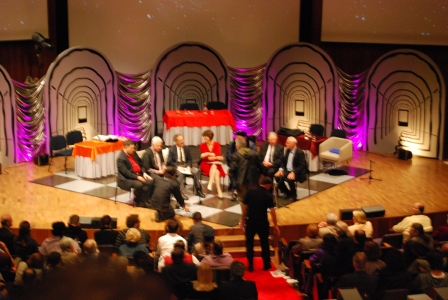
Prosecution & Defence Strategies
The prosecution took the standard line that the trial isn’t about whether Copernican theory is true or not, but only whether Galileo believed in Copernicanism (already considered heretical). This was a good strategy since Galileo was certainly “guilty” of believing in Copernicanism. Unfortunately, it doesn’t make such a good public display since it tends to lead to a dry style of presenting documents showing Galileo’s support for the theory.
The defence on the other hand was a bit too populist, playing up the fact that we know the earth goes around the sun, and that we know that nobody should be convicted of heresy as a crime. It makes true political and scientific points about modernity but at the expense of exploring more interesting threads from the trial.
Cardinal Bellarmine
Part of the fun was that the trial “resurrected” characters who were dead during the time of the historical trial. Below is Cardinal Bellarmine, a prosecution witness. He was the one who originally warned Galileo in 1515/16 not to believe in Copernicanism (and to hold it only as a mathematical theory). Bellarmine was played by a priest who’s considered a bit of a “dissenter” himself: he’s been critical of many popes and was one of the few Australians investigated by the Congregation of the Doctrine of the Faith — the modern name for the actual Roman Inquisition which tried Galileo!
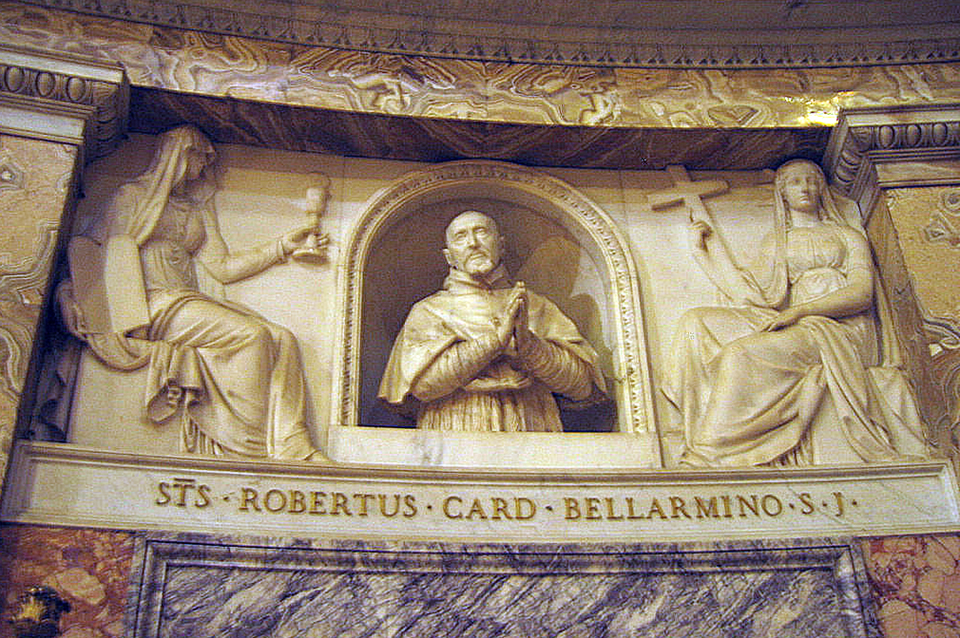
Pope Urban
The Pope had a favourite argument against Copernicanism: that since God is omnipotent he could certainly make the earth stand still even if the scientific evidence points in the other direction. This is logically possible but reminds me of the Satan’s-a-dick-theory of fossils. The Pope asked Galileo to include this argument in his Dialogue but was offended when he placed it in the mouth of Simplicio (the Aristotelian proponent). Cross-examination revealed that the Pope approved the text before publication (and it went through the church censor) but only changed his mind and became offended after the book’s publication..
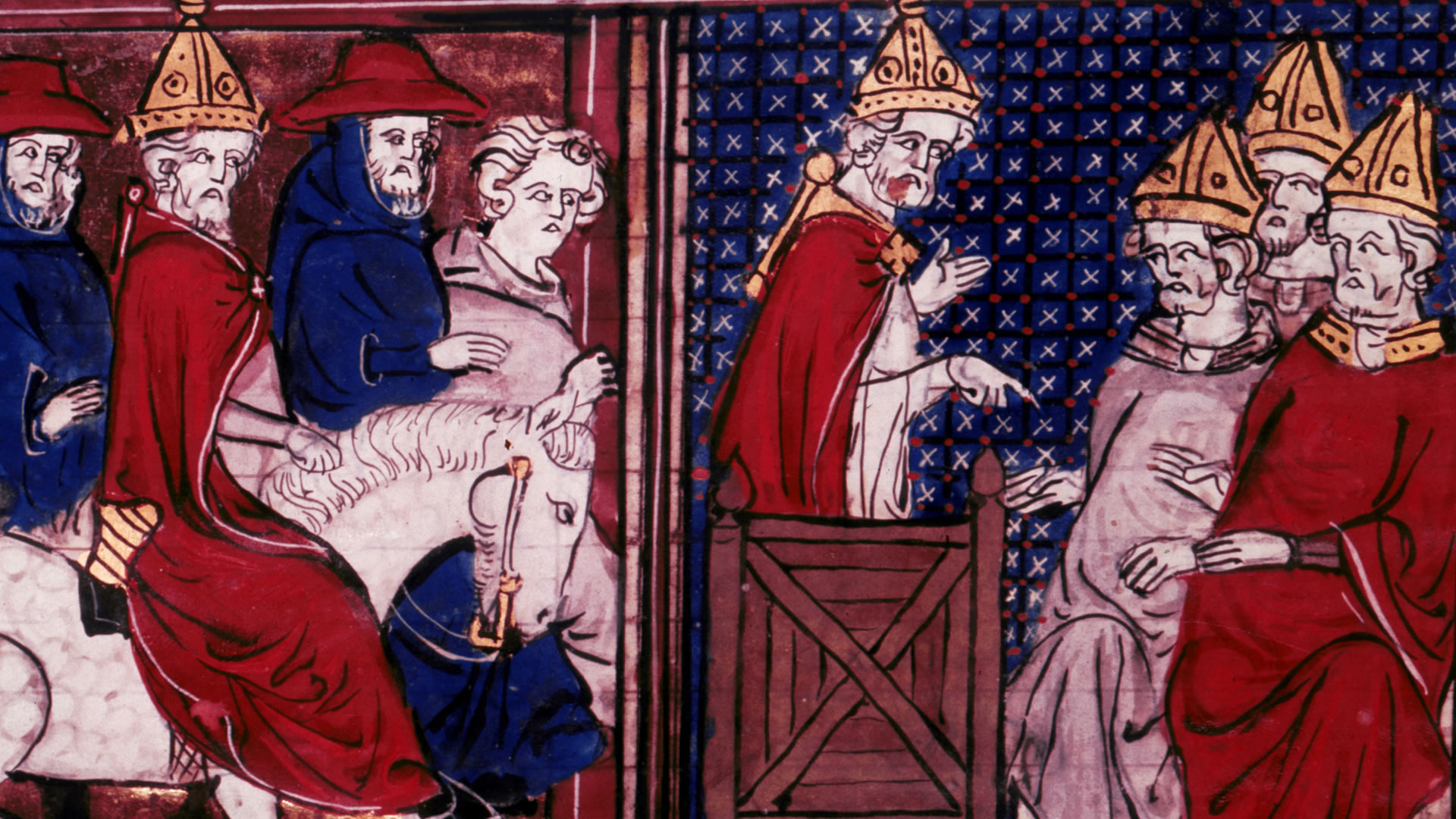
Aristotelian Scholar
The best witness for the prosecution was Alan Saunders (host of ABC’s Philosopher’s Zone brilliantly playing an Aristotelian scholar. He was solid as a rock, saying for instance that we know Copernicanism is false because it’s self-evident that the earth doesn’t move. To me this showed the internal coherence of the Aristotelian opposition to Galileo. Alas, most people just laughed out loud at the “obvious” stupidity and “dogmatism”. The trial had many similar moments.
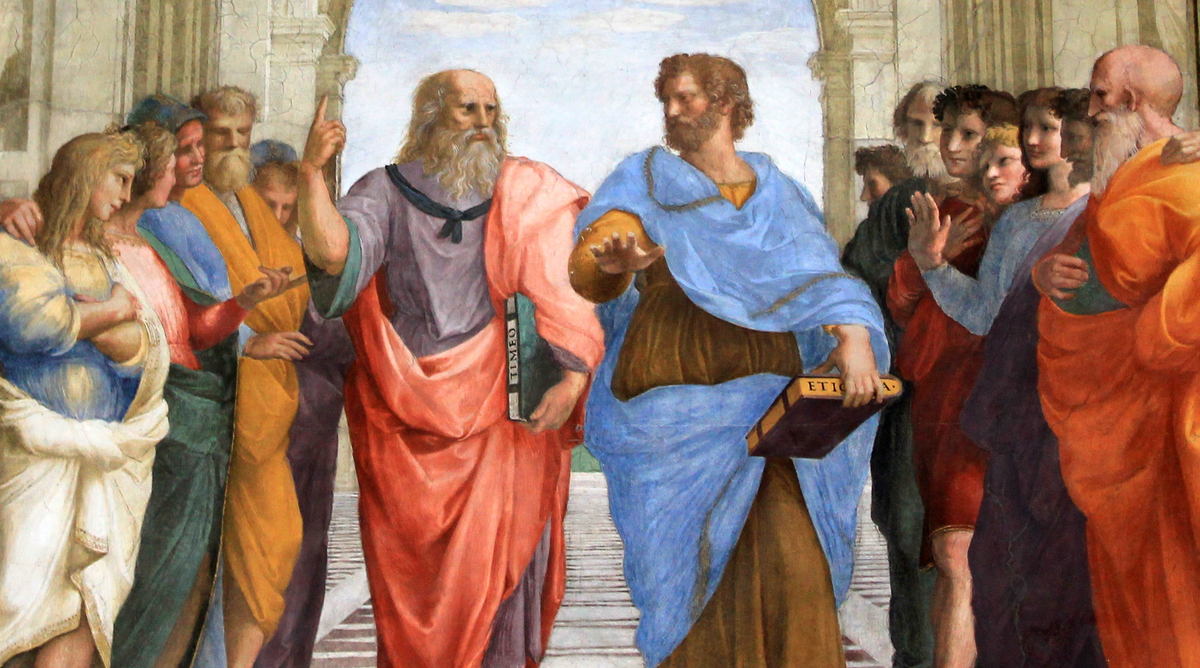
The Duke of Tuscany
Former premier of NSW Bob Carr appeared as a pompous Duke of Tuscany. It was pretty much comic relief but I did enjoy the irony of Carr playing such a blatant ass.
Galileo
Here is Galileo himself. His defence was that the Dialogue DID portray Copernicanism as hypothetical. He didn’t go well with cross-examination. Of course he was unlucky: the evidence against such a defence is overwhelming. Still, he could have stood a bit firmer.
The best part was when he related his historical defence: that he reread the book just before the trial and although it wasn’t his intent, looking at it with “fresh eyes” he does see how someone external might take it as an endorsement of Copernicanism. This had the audience in stitches — and with good reason — but the fact that this really was how he had to extricate himself is the most fascinating bit.
The Verdict
The defence did a good job poking holes in the prosecution’s injunction that Galileo can’t even discuss Copernicanism. They argued it was a forgery (see the previous post on the historical details). Which is why I was surprised that the jury found him guilty on all 3 counts. Although he was “guilty” of holding to Copernicanism, I would have expected he’d be acquitted of the violation of the injunction — which I believe is what happened historically. So the jury was even harsher than the original Roman Inquisition! [EDIT: Made a mistake here, Galileo was found guilty on all counts and admitted to the harsher injunction. He was however allowed time to come up with a way to “gracefully” confess.]
I’ll post my “personal verdict” the next few days.

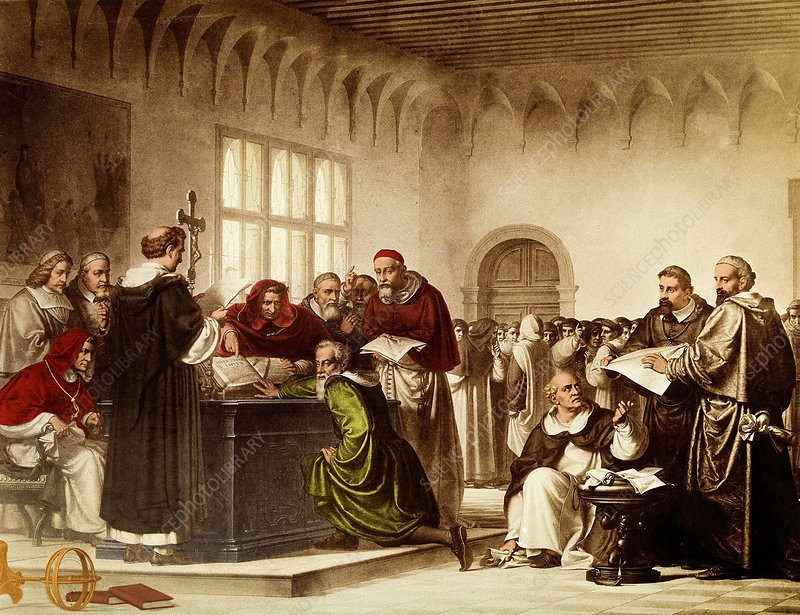



0 Comments